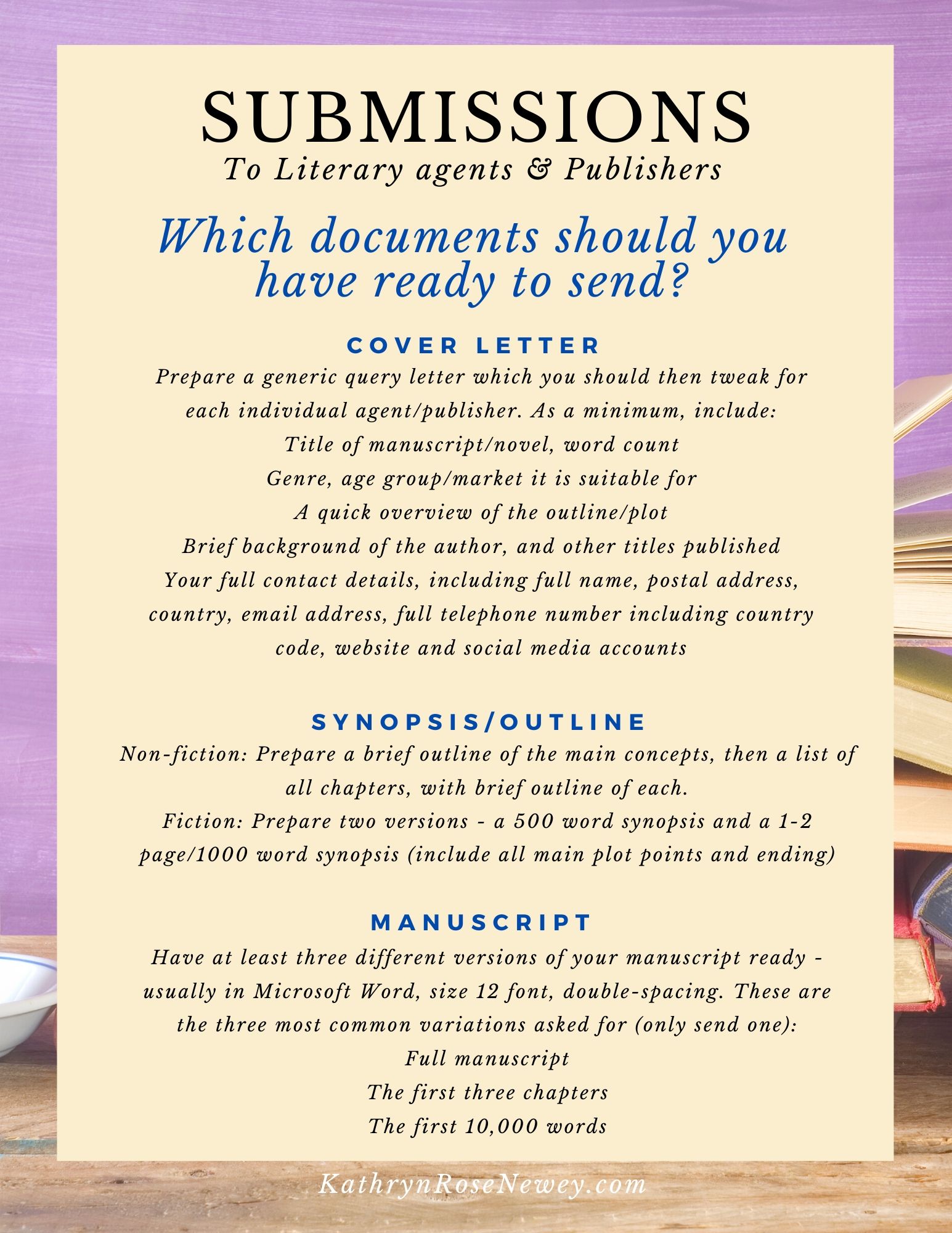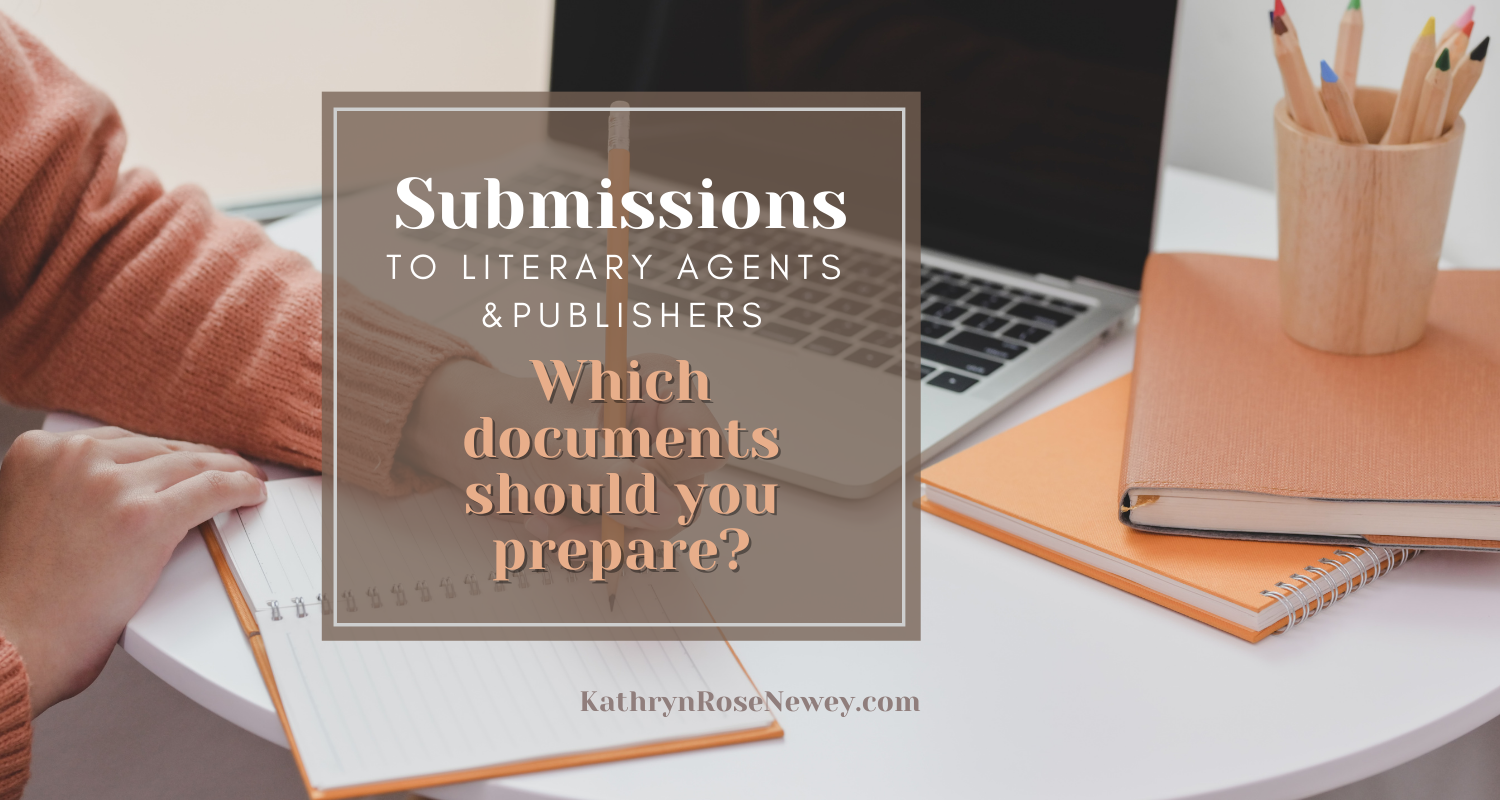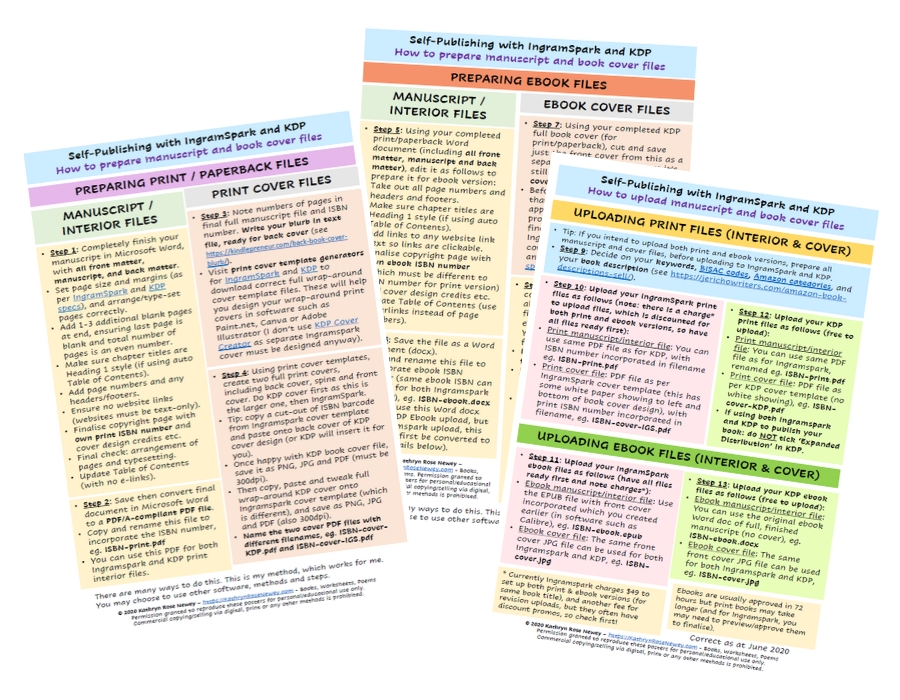Your book manuscript is finally ready.
Edited, checked, unnecessary chapters removed, plot order tweaked, beta-tested, rewritten, ready!
If you’re hoping to publish it via the traditional route – through a literary agent who finds you a publisher, or directly through a publisher – there are some documents, including different length versions of your manuscript you’ll need to have to hand to make your submissions process a little smoother.
Most literary agents and publishers who accept unsolicited submissions prefer submissions to be emailed, or uploaded via their online portals. A few will still accept paper documents sent via postal services to their offices.
Having these generic documents ready in the most common formats requested means you’ll be able to attach them to an email, paste them into the body of the email, or paste them into boxes in the online portal form – depending on what’s required.

Download this as a PDF here: Submissions to Literary Agents & Publishers (3354 downloads )
1. Cover letter / Query letter
Prepare a generic cover letter which you should tweak for each individual agent/publisher. In most cases, the cover/query letter will be the body of the email (ie. it will be an email query/cover letter). As a minimum, include:
- Title of manuscript/novel, word count
- Genre, age group/market it is suitable for
- The ‘hook’/description: A quick overview of the outline/plot
- Brief background of the author (including any relevant qualifications/experience), brief reasons this manuscript was written, and other titles published, if any
- Author’s full contact details, including full name, postal address including country, email address, full telephone number including country code, website, and social media accounts
2. Synopsis / Outline
Non-fiction: Prepare a brief outline of the main concepts, then a list of all chapters, with a brief outline of each.
Fiction: Prepare two versions – a 500 word synopsis and a 1-2 page/1,000 word synopsis (include all main plot points and ending) – only send one.
3. Manuscript
Have at least three different versions of your manuscript ready – usually in Microsoft Word, size 12 font, double-spacing. These are the three most common variations asked for (only send one):
- Full manuscript
- The first three chapters
- The first 10,000 words and/or the first 50 pages
It’s a good idea to include all your contact details on the first or second page of your manuscript/part manuscript, as well as in the submission email.
Tweaks you’ll need to make to your generic documents
Check what’s required. If the literary agency or publisher wants you to submit to a specific agent by name, read about them to ensure your manuscript is a good fit for them, then personalise your email and/or cover letter with their name, and perhaps mention something you’ve noted they’re looking for, but only if your manuscript definitely incorporates those features!
Often they will have rules about formats required, for example, that your manuscript is typed in a specific font, such as Times New Roman size 12, or it must be saved as a Word document or PDF file. Check and change your document(s) as necessary.
Tips before submitting
- While having the most commonly requested documents ready before submitting will definitely make your author life less stressful, you will need to carefully read each literary agent’s or publisher’s exact requirements for submissions on their websites. Sometimes they will have slightly different requirements, so check it out first, and only submit what they ask for – no more, no less!
- Look through their whole website first. Note their current catalogue of books to see if yours would fit with their genres. Especially check out the individual agents, and submit to the relevant person only (if they ask you to do so). It’s important to note which genres, sub-genres and/or age groups each agent represents and what their preferences are, so that your submission is relevant. Submit only once to each agency/publisher, to the most relevant person there.
- Most agencies/publishers understand that you may have submitted simultaneously to other agencies/publishers – it is not usually necessary to say so upfront, unless they ask. However, it is courteous to let them know if an agency/publisher requests more of your manuscript, or expresses further interest in your work, which may result in representation.
- Writer’s Digest has some helpful tips from literary agents here.
- Jane Friedman discusses everything you need to know about query letters here.
All the best with your submissions! 🙂
Woman at desk image by Karolina Grabowska from pixabay.com
Book and flowers image by Selling of my photos with StockAgencies is not permitted from pixabay.com






